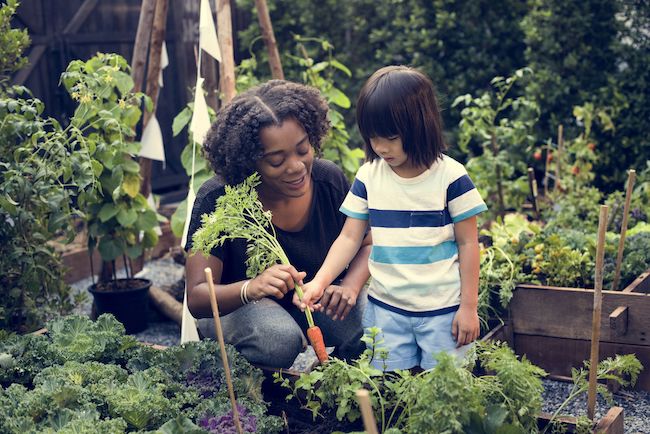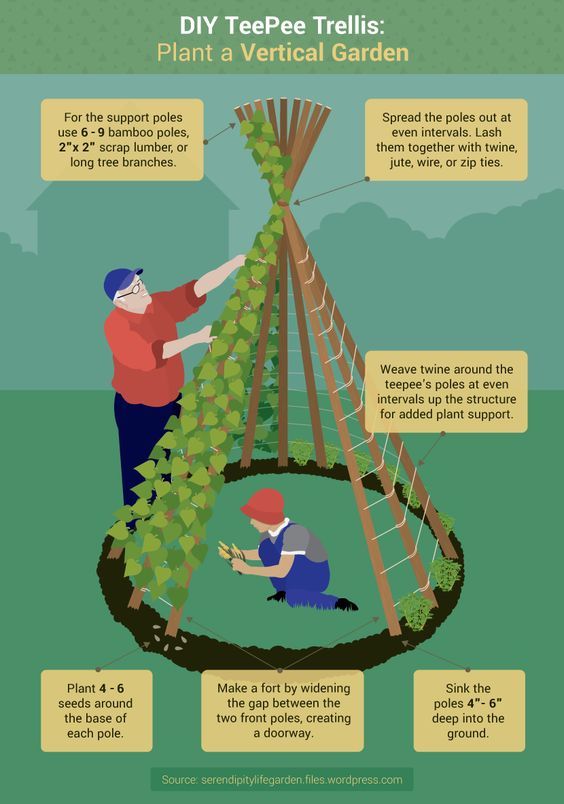
For many families, summer vacations burst with commitments. From swimming lessons to camping trips, it can be tough to find any free time. However, one often-overlooked activity that deserves a place on the family to-do list this summer is gardening. Along with providing fresh vegetables and saving money, growing a garden together can benefit your children in a number of ways.
The Benefits of Growing Gardeners
Gardening with kids isn’t always easy. Young children can be eager and a bit overzealous, weeding out good plants along with the bad, while older children often have something they’d rather be doing. In spite of the challenges, there are many benefits to gardening as a family.
- Gardening can encourage children to eat their vegetables. Green beans are much more appetizing when you’ve grown them yourself and picked them fresh.
- It can improve your child’s science skills. One study indicates that children who garden score higher on science exams than those who don’t.
- Caring for a garden can help teach children responsibility.
- It’s great exercise. Spending time outdoors and moving around can help them stay healthy and sleep better, which is great for parents too!
- It can improve their mood and yours too! Getting exercise, spending time outdoors, and working in the soil can decrease anxiety.
- Getting dirty might help them develop a healthy immune system. Some scientists believe that exposure to some germs can reduce children’s risk of developing allergies, asthma, and autoimmune disorders later in life.
- Planting seeds, watering, and moving soil are all great ways to help children develop motor skills.
- Gardening together can be a great time to connect as a family.
- Spending time in the garden can increase their environmental awareness.
Basic Tips for Gardening With Kids
Unfortunately, there’s no secret method that will make all your time in the garden run smoothly, but there are a few things you can do to make it a fun experience for you and your children.
First, keep it short and simple. Don’t expect your children to be enthusiastic about spending two hours weeding. Secondly, acknowledge ahead of time that it’s probably not going to be a perfect garden. Small children may have trouble with fine tasks like trying to plant tidy rows of tiny lettuce seeds. Your teenager might forget to water. It doesn’t mean you can’t let them try, just be ready for when things don’t go exactly as planned. Lastly, work together. Put on some music or a podcast, get some projects done together, and frame it as a fun and challenging goal, rather than making it into a chore.
Try These Inspiring Projects
 Trying one of these garden projects can help your children appreciate gardening and learn something too.
Trying one of these garden projects can help your children appreciate gardening and learn something too.
- Plant a fort. With a little trellising, many vining vegetables can grow into awesome forts. Try making a teepee with poles, and then plant runner beans around it, so they grow to form a shady retreat later in the summer. You could also create a hoophouse-shaped fort by bending a section of fencing or a cattle panel and plant larger crops, like cucumbers or squash, on each side.
- Grow a themed recipe garden. Growing a pizza, salsa, or salad garden can be a lot of fun for kids because they’ll get to see it all used in a recipe and enjoy what they’ve grown.
- Set up a farmstand. Rather than selling lemonade this summer, let your kids sell some of the produce they worked hard to grow. Selling a few cucumbers to neighbors can be a great way for kids to feel proud of their work and learn about money in the process. Always check local vending regulations and supervise your children.
- Plant a pollinator garden. Growing a pollinator garden is a great science lesson for children, while helping pollinators in the process. It can be educational and encouraging for kids to see hummingbirds, butterflies, and bees visiting the flowers they’ve grown.
- Let them plan a garden. Especially for older children, taking part in the planning process can inspire them to be more involved in the care of the garden. You can also let young children select a few of their favorite varieties to plant. Fun ideas include growing unique varieties, like Moon and Stars watermelon or easy-to-pick Beam’s Yellow Pear tomatoes.
- Try growing a moon garden. If your teen is never up to see the morning glories bloom, consider planting a moon garden instead. You can find great ideas online for gardens that feature night-blooming varieties and help support nighttime pollinators, like hawk moths and bats.
- Incorporate a history lesson. For older children, gardening can also be a great time to learn about history. Plant your own WWII-style victory garden or discuss foods indigenous to North America.
Finding time for family gardening can be tough, but it’s definitely worth it. This summer get your children outdoors to learn and grow!




